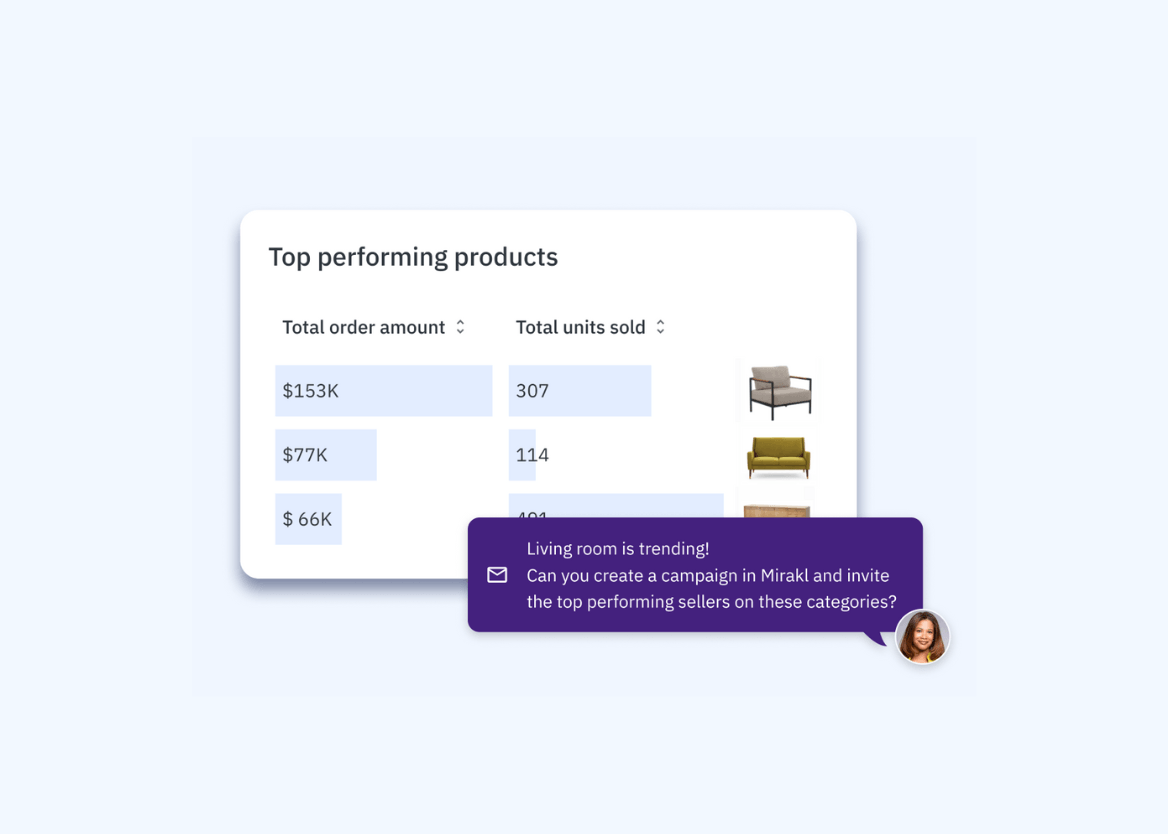The Platform Model: Dispelling the Myths

We’ve seen a strong surge in the number of platform businesses in the last few years, as the marketplace model gains momentum for both B2C and B2B sales around the globe. In 2019, the world’s 100 largest online marketplaces grew by 18%, outpacing overall eCommerce growth. In fact, around the world, marketplaces now generate 58% of all online sales, with consumers spending over $2 trillion on goods and services sold through online marketplaces.
Despite the growing marketplace momentum, some companies are still hesitant to make the leap for themselves, held back by some common misconceptions. To help set the record straight and encourage more companies to get in on the marketplace movement, here’s the truth you need to know about three of the marketplace myths we hear most often.
Myth #1: Marketplaces are only useful for expanding product assortment
While expanding product assortment is one of the most common marketplace use cases, it really only scratches the surface of what a marketplace can do for your business. B2C and B2B organizations alike are leveraging the model in other ways, including:
Services: Incorporating complementary services into your eCommerce offerings allows companies to double-down on the one-stop-shopping convenience a marketplace provides. In-home setup and assembly can be popular options for electronics and home goods, whereas hospitality providers might add local massage or excursion options to name a few.
Aftermarket MRO: With marketplaces, manufacturers can create a digital ecosystem for their industry, enabling them to expand their presence within the supply chain and streamline the purchase process.
Procurement platform: A marketplace can help bring together fragmented buyers and sellers within an industry to create a cohesive procurement solution designed to meet their industry’s unique needs—such as a one-stop-shop for the hospitality industry.
Launch a new business: Adding a marketplace as a brand-new vertical can help you expand into a whole new line of business quickly. Top brands can use a marketplace to launch a new brand-specific segment and scale quickly with a curated set of 3rd party sellers.
Platform for distributor sales: Bringing all of your distributors or franchisees into a marketplace not only makes it easier for your customers to buy from you, but also allows you to gather intelligence directly from the end-consumer about the types of products and services they’re looking for. It also allows your distributors to tap into the growing trend of online shopping and opens the door for many online-to-offline experiences.
Range extension: And finally, the most common use case of offering complementary categories lets you capture more of your customers’ business by expanding the relevancy of your brand in their lives without having to totally rewire the supply chain. For example, a clothing company might add furniture and home goods from 3rd party sellers that align with its brand and values.
Myth #2: Adding a marketplace is purely a technology play
Actually, a marketplace is an entirely new way of doing business that impacts the entire organization. More than just an extension of your standard eCommerce channel, launching a marketplace requires a comprehensive strategy around procurement and sourcing, sales processes and customer support. Physical storefronts add another new element for your business to consider.
Beyond the technology question, some process considerations you will need to think about:
How will you curate and approve sellers and products?
How will you onboard and manage sellers?
Will you accept returns in-store?
How will your customer support handle queries related to marketplace transactions?
How much training will your employees need to implement and successfully run the marketplace?
Does your IT team have the capacity to handle initial marketplace implementation and ongoing management?
How will you avoid cannibalizing business from your current distributor network?
How will you derive insights from all the data you will be collecting through the marketplace?
While technology is certainly one key piece of the puzzle, launching a marketplace requires a complete shift in the way you do business—but it’s one that can pay big dividends.
Myth #3: You can easily build a marketplace internally
This common misconception probably stems from the fact that most great marketplaces look like an extension of the eCommerce site, so it’s easy to assume it was also built in-house. While a custom, in-house solution is always an option, it’s not always the most affordable or most efficient. In many cases, existing systems aren’t built to handle marketplace-specific functionality, like managing third-party sellers, handling high volumes of new products that are coming into the catalog, and managing payout to sellers after the transaction and orders have been completed.
Bringing in platform experts and external back-end solutions to complement your own expertise and systems can actually shorten your implementation timelines by about 20% – offering the ecosystem and features that every marketplace needs, and freeing you to focus on the differentiating factors in your marketplace.
As you decide to implement your marketplace initiative, keep in mind that it isn’t a one-and-done prospect – it's a multi-year journey. Though it is important to go to market quickly, the foundation needs to be scalable for future growth aspirations. With the right use case, a platform mindset, and a team of platform partners to complement your expertise, any organization can launch an online marketplace to win in the platform economy.
Deloitte and Mirakl have partnered to offer customized Marketplace Platform Innovation Workshops, designed to guide you as you shape a platform strategy for your business. To schedule a Marketplace Platform Innovation Workshop, contact Eric Lessard, Sr. Director, Channels & Alliances at Mirakl.



